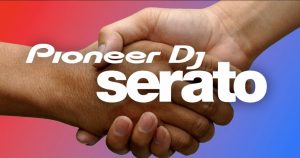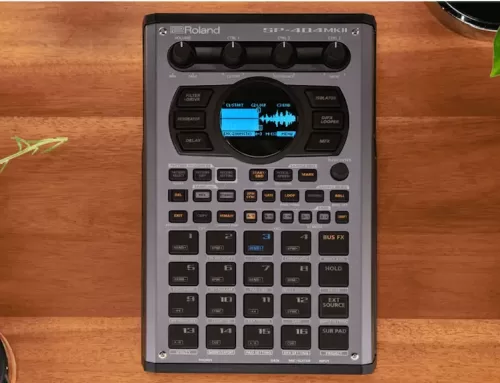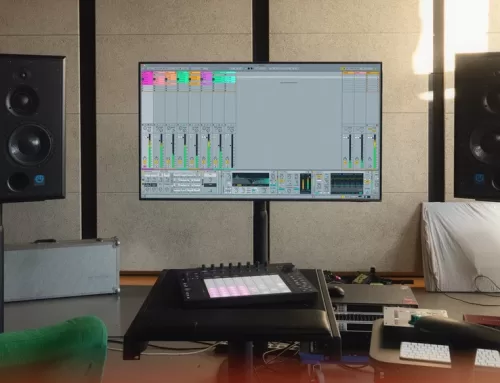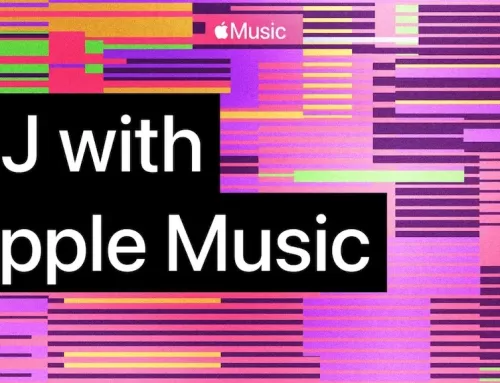
Pioneer DJ has today announced that it is to buy Serato, in a move that will send shock waves through the DJing world, and that – despite reassurances to the contrary – has to bring into question the very survival of Serato as a DJ platform longer-term.
This is how the news was announced today by Pioneer DJ’s parent company, AlphaTheta:
“AlphaTheta Corporation, market leaders in DJ hardware and software through the Pioneer DJ brand, and Serato Audio Research Limited, market leaders in DJ and audio software, are delighted to announce, subject to approval by the New Zealand Overseas Investment Office and other customary conditions, that the two companies have agreed on the acquisition of all Serato shares by AlphaTheta.”
So, subject to usual approvals, Pioneer DJ now owns Serato. The question is, what does this mean for DJs? Glibly, Rekordbox DJs should expect their sub-standard stems performance to be boosted by folding in Serato’s stems tech (the wider point being that Serato’s R&D will benefit Rekordbox), but let’s dig a little deeper…
Phil’s hot take on the news
Despite terrible data speed on a busy ferry crossing, this news was just too big for me to not switch my camera on and share my thoughts on how it might affect you, the DJs, and the wider industry.
What does this mean for Serato users?
Part of the statement also reads:
“While the partnership will capitalize on the combined expertise of both companies, AlphaTheta and Serato will continue to operate as standalone brands. This includes the continuation of their longstanding partnerships with key players in the DJ hardware and software industry.”
In the short term, then, it seems Serato’s future as a platform is safe. However, medium term and beyond, this surely becomes more uncertain.
Why? Well, there’s the obvious: why would a DJ hardware company need two software brands, when that software does essentially the same thing?
Then, Serato of course partners with brands like Roland, Reloop, Numark and Rane to produce bespoke hardware for its software – all of whom are direct competitors with Pioneer DJ’s own hardware. These companies would effectively be negotiating with a competitor to license software for their products. We’d guess they would be less willing to do so, meaning they may withdraw from making Serato controllers. That would lead to Pioneer DJ further increasing its already dominant position as the hardware Serato DJs use.
Pioneer DJ was already in the somewhat strange position of having to make hardware for two platforms, mainly due to market forces (many DJs love to use Serato). But as the owner and dominant hardware manufacturer for both of those platforms, it would make sense for Pioneer DJ to further its efforts to combine the two.
Serato users need not worry for now – but should be ready for big changes in the years ahead.
And of course, some people choose Serato because they don’t want to see an industry dominated by just one player. With Serato now owned by Pioneer DJ, their platform has now been swallowed up by the “behemoth”.
How may this affect the rest of the industry?
This is of course all speculation, but should a manufacturer wish to make a DJ controller from now on, with Pioneer DJ owning both the main software brands (Serato and Pioneer DJ’s own Rekordbox account for nearly 80% of software use), such a manufacturer will have only a couple of other choices among bigger players: VirtualDJ and djay Pro. Neither may feel like a good fit. As stated, this new fact of life may simply discourage new controller development.
But there is a twist: inMusic is the owner of Numark and Rane, and also Denon DJ – three of the biggest names in DJ gear outside of Pioneer DJ. It already has its own software platform for embedded systems, Engine DJ. It may feel incentivised to now develop Engine DJ – which is well regarded – into a full software platform. It is a big enough company to do so, and to do so well.
We could see a future where Denon DJ, Numark and Rane gear all works with an Engine DJ laptop platform, and Pioneer DJ is the hardware for Rekordbox, Serato, or any future amalgamation of the two.
A two-horse race?
Ultimately, DJ tech is a small world. Pro DJs tend to value simplicity and consistency and are generally happy to use Pioneer DJ gear in the DJ booth. The brand’s dominance reflects that.
However, monopoly usually stifles development and innovation. So competition is good. But to compete with the dominance and might of AlphaTheta aka Pioneer DJ, a company needs resources and brands. inMusic has both.
We now view the consolidation of the DJ tech world as being a two-horse race. If this news encourages inMusic to hasten an entry into the full-blown DJ software world, we may see the kind of shot in the arm for DJ software that inMusic’s Engine DJ platform gave to standalone systems. A two-horse race may just be good news for DJs. Only time will tell – but one thing we do know: This is the biggest shakeup in the DJ world for quite some time.
Indeed, were it more than a niche industry, such a takeover may be subject to regulation around monopolies – but that seems unlikely. So, we have a new future – let’s see where it takes us.
![Carl Cox says his Ibiza residency at [UNVRS] will be a “whole new world” (DJ Mag)](https://www.myhouseradio.fm/wp-content/uploads/2025/04/carl-cox-1.jpg-500x383.webp)




Leave A Comment
You must be logged in to post a comment.